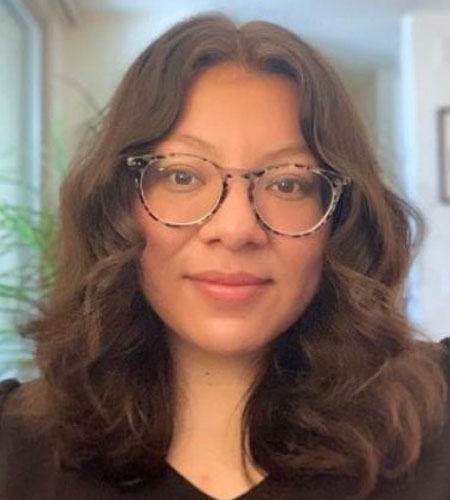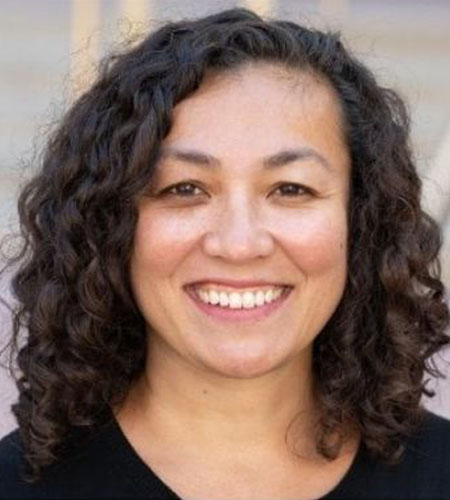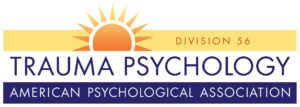Issue Archive
Integrating familismo into evidence-based trauma therapies to increase treatment engagement among Latine youth

Yesenia Aguilar Silvan & Lauren C. Ng
Section Editor: Antonella Bariani
Peer Reviewers: Linda Zheng & Molly Becker
Trauma Exposure Disparities for Latine Youth
By age 17, 46% of youth in the United States will have experienced at least one potentially traumatic event such as community violence or family separation (Sacks & Murphey, 2018). This major public health concern is associated with the development of mental health disorders, poor physical health, and early death in adulthood (Kalmakis & Chandler, 2015). Traumatic events have a dose-dependent relationship with health outcomes: as exposure to trauma increases, the severity of poor mental and physical health symptoms also increases. Among low-income, racial/ethnic, and immigrant minoritized groups, exposure to traumatic events is disproportionately higher (Haider et al., 2013; Sacks & Murphey, 2018). For example, Latine youth are more likely to witness violence in their neighborhood, have a guardian serve time in jail, and lack basic necessities like food and housing compared to non-Hispanic White adolescents (Sacks & Murphey, 2018). Despite having higher rates of traumatic exposure, racial/ethnic minority groups, such as Latine youth, are less likely to receive mental health services for trauma compared to non-Hispanic White patients (Haider et al., 2013; Zhang et al., 2021). Moreover, Latines with trauma initiate and stay in trauma treatment at lower rates than their White counterparts (McClendon et al., 2020; Youn et al., 2019). These inequalities disproportionately increase the risk of subsequent health problems among Latine youth.
Familismo as a Potential Mechanism for Increased Treatment Engagement
Familismo, a core value in Latine culture (Steidel & Contreras, 2003), may increase treatment engagement among Latine youth (Burrow-Sánchez et al., 2015). It mediates the relationship between trauma exposure and mental health symptoms (Dixon De Silva et al., 2020), and comprises multidimensional aspects, including the obligation to provide material and emotional support, use relatives as behavioral and attitudinal references, and rely on family members as sources of support (Steidel & Contreras, 2003). Substance use treatment research demonstrated that Latine youth with higher levels of familismo attended more treatment sessions and completed more practice worksheets (Burrow-Sánchez et al., 2015). According to a case study, familismo can be a mechanism to increase engagement in trauma treatment by reframing attendance and homework completion as evidence of the client’s dedication to seek help to provide for his family (López et al., 2014). This reframing improved his motivation to attend sessions and try challenging assignments (e.g., exposure hierarchy). Familial closeness, a component of familismo, is also a protective factor for Latine youth that can foster a supportive home environment and promote their trauma recovery (Dixon De Silva et al., 2020). These findings suggest that clinicians who can integrate familismo into the delivery of evidence-based trauma therapies may increase engagement among Latine youth by making treatment more relevant and appealing for those with this cultural value. A recent study found that across the most commonly used trauma therapies for youth, such as Trauma-Focused Cognitive Behavioral Therapy and Prolonged Exposure, there were common elements (i.e., techniques and mechanisms) (Kooij et al., 2022), that may be enhanced by integrating familismo.
Selective Adaptation
Clinicians often struggle with identifying whether trauma therapies should be culturally adapted. Clinicians working with Latine youth can use a selective adaptation approach to determine whether trauma therapies should be adapted by incorporating familismo. The selective adaptation model argues that data should be used to identify (a) clients who would benefit the most from adaptation (e.g., Latines with high level of familismo), and (b) problems (e.g., engagement challenges) that may be targeted through adaptation of the treatment content (Lau, 2006).
Identifying Latine Youth with High Familismo
Latine subgroups in the United States have distinct relationships with the United States, service utilization, and mental health (Keyes et al., 2012). For example, rates of psychological disorders and mental health service use among people from Puerto Rican origin are more similar to non-Latine Whites than other Latine subgroups. Therefore, it is crucial to consider the heterogeneity among Latine subgroups before culturally adapting trauma therapies. To assess within-group variance in familismo, clinicians can use the Cultural Formulation Interview (Jarvis et al., 2020) during the initial mental health intake or screening to assess the importance of familismo among Latine youth.
Clinicians can gauge cultural perceptions of support by asking youth how family support is affecting their symptoms and assessing cultural factors affecting past help-seeking behaviors (e.g., family commitments and stigma). It is also essential to understand how cultural factors can impact current treatment engagement and whether family members support the youth’s decision to seek mental health care. Indeed, assessing the role of familismo, such as the extent and obligation of family to serve as a source of emotional support, is critical as one of the most robust predictors of mental health outcomes among youth who have experienced traumatic events is the quality of support provided by family members (Trickey et al., 2012).
Identifying Engagement Challenges in Trauma Therapies
Effective treatment outcomes in trauma therapies are reliant on identifying and addressing engagement challenges. Although engagement challenges are often equated with attendance issues, such as missed appointments or tardiness (Lakind et al., 2022), it is important for clinicians to recognize that engagement in trauma therapy is multidimensional and encompasses several domains. By using the acronym REACH (Lakind et al., 2022), clinicians can assess if Latine youth are encountering difficulties with the Relationship (e.g., therapeutic alliance), Expectancy (e.g., beliefs about the helpfulness of trauma therapy), Attendance (e.g., missed appointments or being late for sessions), Clarity (e.g., agreement about treatment goals such as conducting the trauma narrative), or Homework (e.g., active participation of work assigned in and outside of sessions). By considering these different domains, clinicians can then develop tailored adaptations to improve treatment engagement.
Trauma Therapies Content Adaptations
Data from the Cultural Formulation Interview can be used to plan specific modifications that may make trauma therapies more engaging and appropriate for Latine youth and families with high levels of familismo. Specifically, clinicians can incorporate familismo throughout trauma treatment to foster positive cognitive-emotional regulation in caregivers and strengthen their role as behavioral and attitudinal references for their child. During the trauma narrative, which is a common element of trauma therapies, caregivers’ positive cognitive-emotional regulation of their own reactions and support for their child’s trauma-related reactions, reduced youth’s internalizing symptoms after treatment (Yasinski et al., 2016). Conversely, avoidance and blame from caregivers resulted in youth having higher internalizing and externalizing symptoms, and more problematic thinking patterns (e.g., generalized trauma beliefs). Thus, during trauma narration and processing, clinicians can help caregivers understand that many emotions and reactions will come up when learning about youths’ traumatic experiences, and that reactions such as avoidance or blaming the youth are harmful. Specifically, clinicians can highlight that youths need to feel supported to become healthier and that caregivers may meet their family obligation to provide emotional support (i.e., a component of familism) by practicing positive cognitive-emotional regulation skills. During the skill-building phase, another common element in trauma therapies, clinicians can also reframe parent modeling as being consistent with familismo by reminding caregivers that they are behavioral and attitudinal references for their child. Furthermore, when choosing coping skills to teach the youth, clinicians can prioritize teaching social coping skills that incorporate support from family members (i.e., a component of familismo) as social coping skills are associated with decreased mental health symptoms among Latine youth (Cardoso, 2018). Social coping skills that incorporate family members include activities such as talking to a trusted family member, attending family gatherings, watching something humorous with a sibling, or exploring their cultural identity with extended family.
Conclusion
Given the critical role of familismo among Latine culture (Steidel & Contreras, 2003) and evidence showing that this cultural factor mediates differential mental health outcomes among Latine youth who have experienced traumatic events (Dixon De Silva et al., 2020), it is critical for clinicians to understand and consider how to incorporate familismo in the delivery of trauma therapies. We believe that capitalizing on familismo as a way to optimize the role of family in treatment using selective adaptation might open opportunities to address the sociocultural context of Latine youth and increase initial and sustained engagement in evidence-based trauma treatments without undermining the therapeutic value of the original intervention.

YESENIA AGUILAR SILVAN is a doctoral graduate student at the University of California, Los Angeles (UCLA) Clinical Psychology program in the Treatment and Research for the Underserved with Stress and Trauma (TRUST) lab. Her research focuses on using implementation science frameworks to address mutable factors that contribute to documented mental healthcare disparities in care access and continuity for trauma-exposed communities. Yesenia’s clinical interest includes delivering evidence-based interventions to racial/ethnic minority youth in community settings and using strategies to help racial/ethnic minority and monolingual Spanish-speaking families engage in trauma-focused treatments.

LAUREN C. NG is a clinical psychologist and an Assistant Professor in the Department of Psychology at the University of California, Los Angeles (UCLA), where she is the lab director of the Treatment and Research for the Underserved with Stress and Trauma (TRUST) lab. Her research focuses on translational science as applied to developing, culturally adapting, and implementing evidence-based posttraumatic stress disorder (PTSD) interventions for underserved, minority communities in the US and low- and middle-income countries.
Citation: Aguilar Silvan, Y., & Ng, L. C. (2023). Integrating familismo into evidence-based trauma therapies to increase treatment engagement among Latine youth. Trauma Psychology News, 18(2), 26-30. https://traumapsychnews.com
